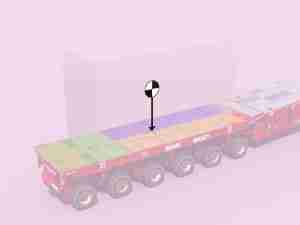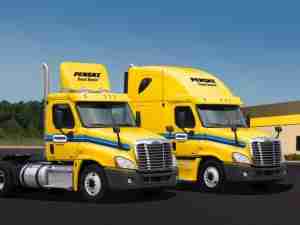New clean diesel is the fastest, lowest cost route to emission reductions in Northeast states
posted by AJOT | Sep 26 2017 at 08:08 AM | Intermodal
NEWARK, N.J. – Eight states in the Northeast are set to receive approximately $306 million as part of the emissions settlement from the Volkswagen (VW) Environmental Mitigation Trust. This money is earmarked for projects that immediately reduce emissions of oxides of nitrogen (NOx), so as to mitigate the excessive NOx generated by diesel VW cars operating in these states.
Applying VW settlement funds to replace or update the largest and oldest trucks, industrial marine and locomotive engines in the Northeast with the newest clean diesel technology would yield immediate and significant NOx benefits at the lowest cost per ton, compared to electrification and other as-yet commercially widespread technologies.
“Regulators across the Northeast must recognize the current and future role of diesel technology in the global goods movement sector, and the substantial, immediate clean air and climate benefits that come from the accelerated adoption of the latest clean diesel technology,” said Ezra Finkin, Director of Policy and External Relations at the Diesel Technology Forum (the Forum), speaking at the Northeast Diesel Collaborative Partners Meeting (Sep. 25-26, Newark, N.J.). “East Coast communities near manufacturing hubs, shipping/trucking throughways and ports will benefit the most from accelerating the introduction of newer clean diesel technology in emission reduction.”
The Northeast represents a significant sector for U.S. heavy-duty trucking. Trucks registered in these eight states (Connecticut, Maine, Massachusetts, New Hampshire, New Jersey, New York, Rhode Island and Vermont) make up 10 percent of the nation’s 5.6 million-vehicle commercial fleet. Plus, nearly 10 percent of the nation’s diesel engines are manufactured there.
Because of its unique combination of power, performance, efficiency, reliability, durability and availability, diesel power is projected to remain the dominant technology for global goods movement on land and sea by a number of forecasters. The Fuels Institute, using analysis from Navigant Research, predicts that by 2025 diesel will still be the predominant engine type powering commercial vehicles. Battery electric, fuel cell and natural gas powertrains will only make up about 3 percent of the commercial vehicle fleet. The newest generation of clean diesel technology achieves near-zero levels of NOx emissions and particulate matter emissions, while also maintaining an efficiency and performance advantage over other fuels.


_-_28de80_-_9b2f972cdce64d5f7c8d952d74a16521db70a589_yes.jpg)



